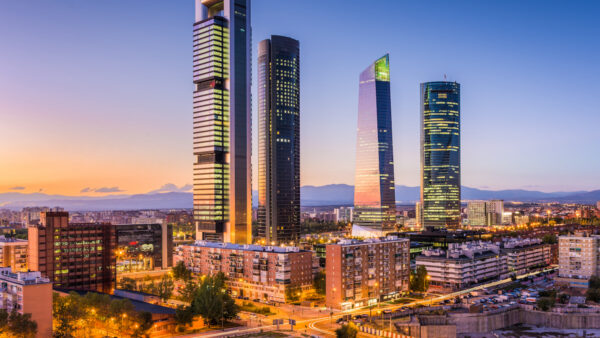Most companies in Spain use a split working day, resting at noon. But in summer the intensive workday is extended, with no breaks. What can we learn about these shifts?
Productivity is not always achieved with long working hours. The vast majority of companies in Spain maintain a split working day, where the worker rests at noon. But in summer the intensive workday is extended, without breaks. What can we learn about these different shifts?
Find out with us in this post how the intensive working day works in Spain and which workers have access to it. In addition, we will be reviewing what are its strengths and weaknesses against the split working day.
What Is an Intensive Workday
The intensive or continuous workday consists of work being carried out all at once, without extensive breaks. Although it is the most common in the international working world, in Spain it only tends to occur in summer and only in certain companies.
In Spain, the working week is between 35 and 40 hours. Companies that incorporate an intensive workday in summer tend to compensate with longer working hours during the rest of the year. Thus, in the summer months, when temperatures are at their highest, the work is done all at once, with a short break of 15 or 30 minutes.
This model allows for a better work-life balance, as workers get home earlier. However, although it may seem so, not everything is positive. We will review the main problems later on. First, however, let’s find out which workers in Spain have access to the intensive workday.
Which Workers Have Access to the Intensive Workday?
There is no general legislation on this aspect, but it is regulated via collective bargaining agreement or in the contract of each company. Legally, it is difficult to oblige the company to work intensive shifts. Many times, they prefer to avoid it in order to keep the same schedule as their suppliers or clients.
A worker in Spain can request a reduction of working hours from the company during the summer if necessary. However, the company can refuse (giving valid reasons, that is always) and, if it accepts it, it will always bring with it a reduction in salary.
Only 20% of workers in Spain enjoy intensive working hours during the summer, and this is more widespread in the service sector. Some 40% do so throughout the year, but it is normally restricted to Fridays.
Split vs Intensive Workday
Is it better to work the whole day at once, or does stopping at lunchtime to rest help to cope better with the workload? Although most workers see the effects of the intensive workday as very positive, the truth is that it also hides a problem that we cannot forget.
We take a look at five key points in the work environment to find out where each model shines. Intensive or split working day: which is the best option?
- Work-life balance. We have discussed extensively about this topic on the blog: a worker who reconciles is a happy worker and therefore works better. Leaving the office earlier means that the worker has more time to devote to himself and his family. In terms of work-life balance, the intensive workday clearly wins.
- Team spirit. Knowing your colleagues well is very important for creating a great team. This is achieved by creating bonds, which do not always have to be related to the work itself. The split workday encourages teams to have joint lunches and free work time, thus creating greater unity.
- Motivation and productivity. It has been shown that the intensive workday favors the organization of the employee’s time. It is easier to concentrate and the employee’s motivation is increased. All this also helps to reduce absenteeism. The intensive workday takes this item.
- Occupational hazards. Climate change brings with it increasingly extreme temperatures. We are seeing this in the extremely hot summers. An intensive workday can be dangerous for many workers. Working in the middle of the day is easy if we work in an air-conditioned office. But working outside in the sun during a heat wave can be lethal. A split workday would avoid many occupational hazards due to high temperatures.
- Ecological awareness. Energy costs have become a very relevant issue in recent months. Reducing working hours saves costs for the company and also improves the use of resources, taking care of the environment. In terms of impact on the planet, the intensive workday is much more respectful.
Do you rather the intensive or split working day? Whatever you prefer, on Jobstoday.world you will find an opportunity with the ideal schedule for you, you just have to discover it! Start looking for the best job offers on Jobstoday.world now. We look forward to seeing you succeed.
See more:
- Extreme temperatures can lead to decreased productivity. Follow our tips for working during a heat wave.
- Another measure of ease for workers is the four-day week.
- In addition to work-life balance facilities, what attracts employees to a company?




